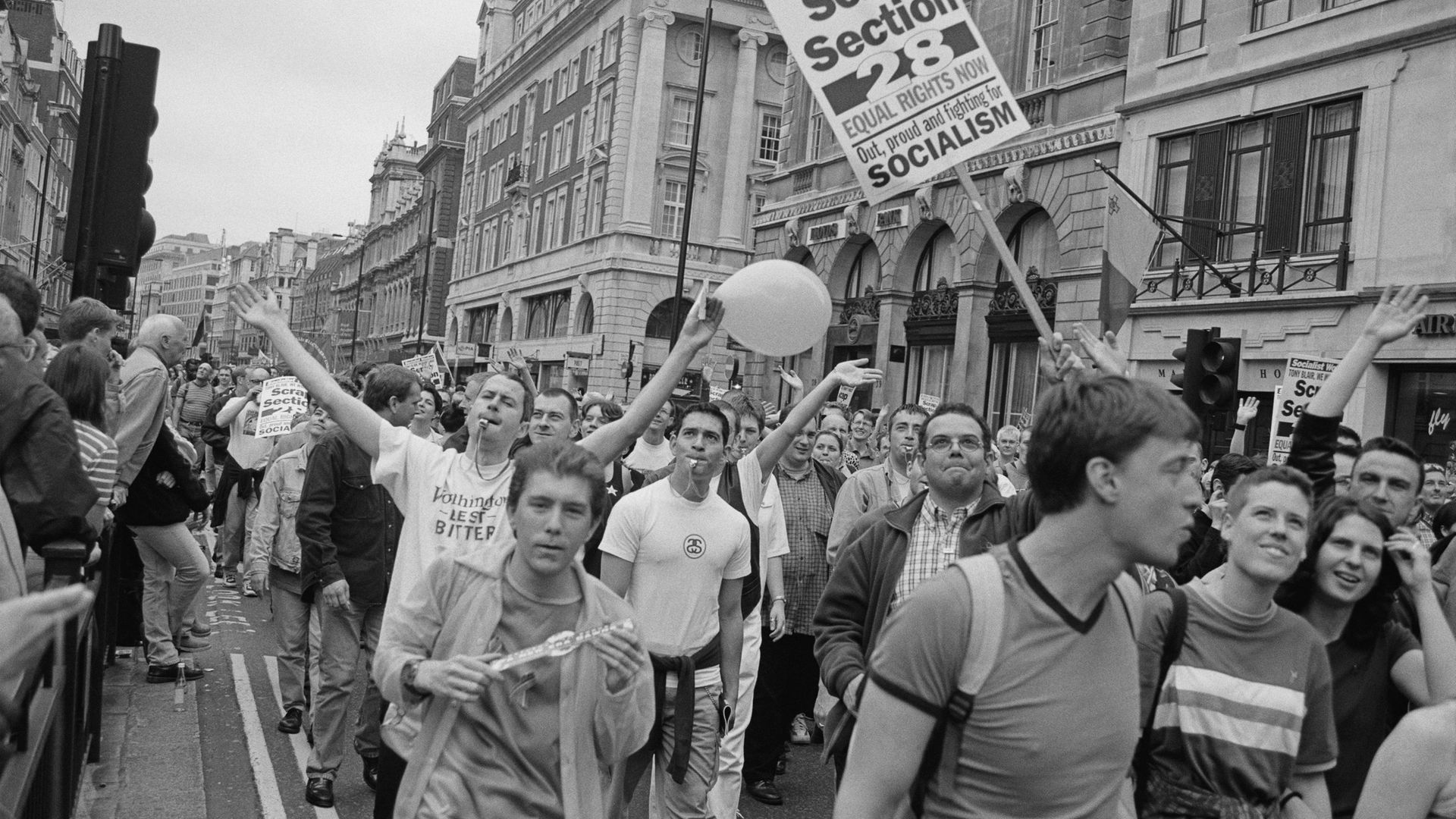
Culture wars aren’t new. We’ve been having them for decades. What, after all, was the sixties about?
The Wilson government’s liberalising reforms were attacked as ushering in the ‘Permissive Society’. And the peace movement may have had its roots in the Aldermaston Marches, but its greatest victory was the success of the anti-Vietnam war movement.
The 1980s – the decade that forged contemporary Britain – was the site of huge culture wars. And once again the left was leading them.
When Ken Livingstone was leader of the Greater London Council, he wrote the playbook for modern culture warriors. There were the unemployment figures displayed on County Hall. And the funding that promoted women’s rights, gay rights, race equality, and police monitoring.
This was institutional trolling, particularly as Ken’s GLC sat on the opposite bank of the Thames from the House of Commons.
The result? Short term? The abolition of the GLC and the Inner London Education Authority (ILEA). Long term? Victory for Ken as he saw each of his causes adopted by the Conservative Party.
This leads to the key question about any war. Who wins and why?
In politics, there’s really only one struggle, and that’s the battle for the title ‘On Your Side’. The losers are invariably branded by voters as ‘Out of Touch’. In 2019, the Corbyn-led Labour Party was seen as ‘out of touch’, while there has rarely been a more effective ‘on your side’ slogan than ‘Get Brexit Done’.
Unsurprisingly, Boris Johnson and his government want to maintain their advantage and see a war on ‘woke’ as the way to keep hold of former Labour voters.
But is it? In politics, if you pick a fight you should first make sure you can win it – and we have seen this movie before.
In the 1980s, the Conservative government fought a culture war over gay rights. They introduced Section 28, which banned local authorities from ‘promoting homosexuality’. This had a chilling effect on local authority provision for gay men and lesbians at the height of the AIDS epidemic.
The choice came from the top. Margaret Thatcher told the Tory conference in 1987 that “children are being taught they have an inalienable right to be gay”. At the time this must have seemed a winner for the Conservatives. Opinion polls showed that nine out of ten people opposed same-sex relationships.
But polls are a snapshot – they tell you about what’s happening today, they don’t predict the future. For that you need to look deeply at underlying trends – and the UK was getting relentlessly more liberal. The continuing expansion of higher education, and the growth of white collar professional employment was changing the country.
A smarter move by the Tories would have been to co-opt gay rights into conservatism. They should have hailed marriage and families as the foundations of freedom and capitalism and welcomed gay men and lesbians into those bourgeois institutions.
Instead, they took the bait and even as they were winning their historic fourth term in 1992, they were cementing their reputation as the ‘Nasty Party’. They paid the price in the landslide defeats of 1997 and 2001 and finally had to commit to equal marriage to show voters they had really changed.
The Tories are now making the same mistake, or worse, over ‘taking the knee’. They think there is political gain from dismissing a stand against racism as “gesture politics”. But they are wrong. They risk the same fate as in the nineties.
First, they are trying to hold onto an electoral coalition that is already dissolving because cycles of political change are moving faster now than last century. Social media is one element of this – it has speeded up the making and breaking of reputations. And voters are less loyal than ever – all three recent by-elections show that long-lasting electoral coalitions are fracturing.
Secondly, the Conservatives are campaigning in a country whose population and values are changing. They do understand that profound social change is happening – that’s why they claim to be the new party of the working classes. Yet they appear to believe in a mythical working class – white, and with a sole male breadwinner. The problem for them is that, like the rest of the country, working class communities are increasingly diverse.
Up to a fifth of the modern British working class are BAME. How can you claim to be the party of the working class if racialised division is a defining part of your politics? With one in ten UK couples a mixed-race relationship, there is virtually no-one that doesn’t have a mixed-race couple as friends or family.
Thirdly, modern politics is about trust and authenticity. In the words of Sir Humphrey, it’s a “courageous decision” for a politician to take on the England team.
Worse, there’s a barely concealed condescension towards the athlete, implying that they are either naïve or stupid.
Yet this is the best-educated generation of footballers ever. Thanks to the excellent educational programmes now provided by clubs and their academies, if they weren’t playing for England some of these players would be working for the Big Four. Politicians talk down to footballers at their peril.
Finally, solidarity is an old-fashioned value in some ways, but the belief that an injury to one is an injury to all is one of the fundamentals of team sports. The current government may disdain collective behaviour, but it’s clear the public don’t. The government picked this fight, and now they are losing they are trying to change the terms.
That’s not how it works. This miscalculated culture war will cost the Tories as profoundly as Section 28 did.
Warning: Illegal string offset 'link_id' in /mnt/storage/stage/www/wp-includes/bookmark.php on line 357
Notice: Trying to get property 'link_id' of non-object in /mnt/storage/stage/www/wp-includes/bookmark.php on line 37






